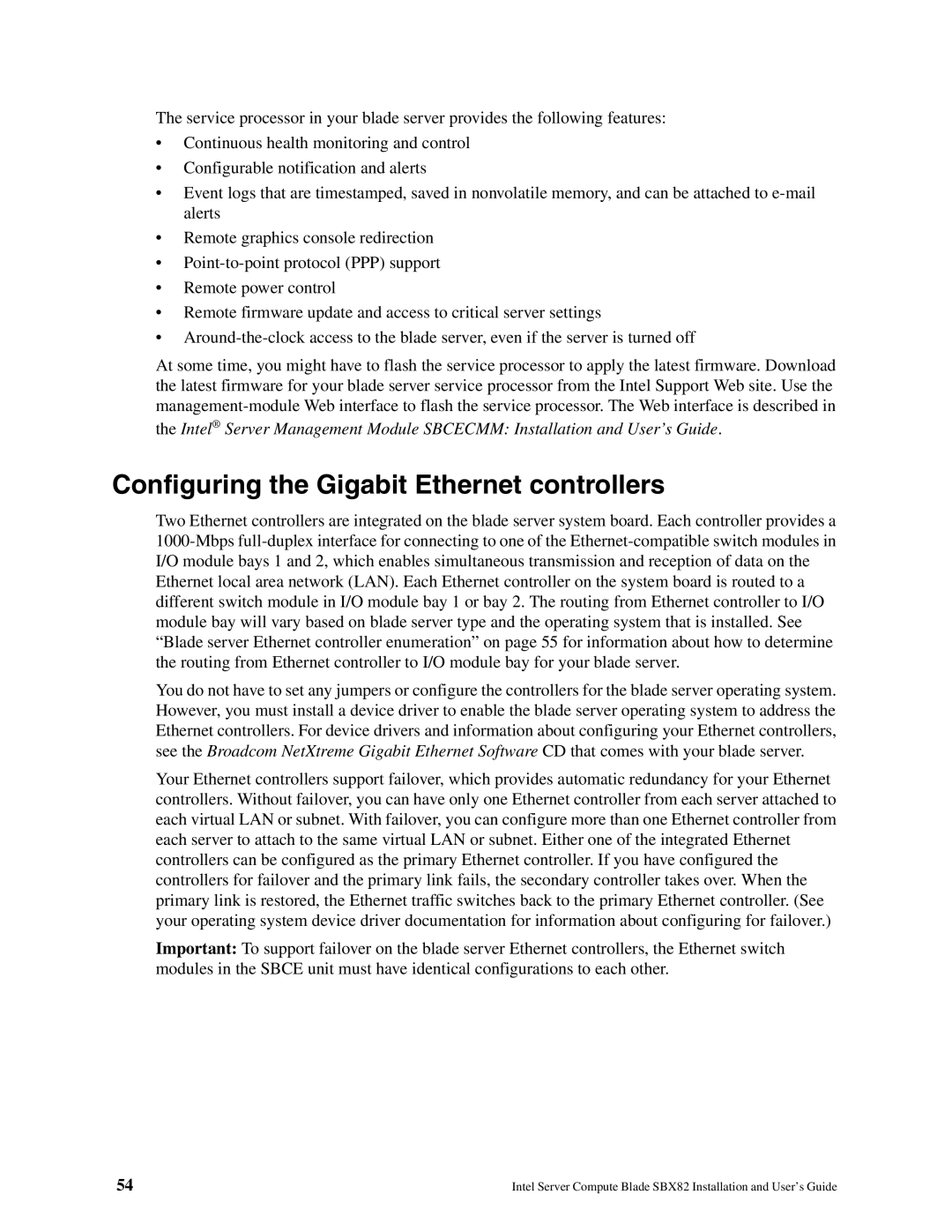The service processor in your blade server provides the following features:
•Continuous health monitoring and control
•Configurable notification and alerts
•Event logs that are timestamped, saved in nonvolatile memory, and can be attached to
•Remote graphics console redirection
•
•Remote power control
•Remote firmware update and access to critical server settings
•
At some time, you might have to flash the service processor to apply the latest firmware. Download the latest firmware for your blade server service processor from the Intel Support Web site. Use the
the Intel® Server Management Module SBCECMM: Installation and User’s Guide.
Configuring the Gigabit Ethernet controllers
Two Ethernet controllers are integrated on the blade server system board. Each controller provides a
You do not have to set any jumpers or configure the controllers for the blade server operating system. However, you must install a device driver to enable the blade server operating system to address the Ethernet controllers. For device drivers and information about configuring your Ethernet controllers, see the Broadcom NetXtreme Gigabit Ethernet Software CD that comes with your blade server.
Your Ethernet controllers support failover, which provides automatic redundancy for your Ethernet controllers. Without failover, you can have only one Ethernet controller from each server attached to each virtual LAN or subnet. With failover, you can configure more than one Ethernet controller from each server to attach to the same virtual LAN or subnet. Either one of the integrated Ethernet controllers can be configured as the primary Ethernet controller. If you have configured the controllers for failover and the primary link fails, the secondary controller takes over. When the primary link is restored, the Ethernet traffic switches back to the primary Ethernet controller. (See your operating system device driver documentation for information about configuring for failover.)
Important: To support failover on the blade server Ethernet controllers, the Ethernet switch modules in the SBCE unit must have identical configurations to each other.
54 | Intel Server Compute Blade SBX82 Installation and User’s Guide |
